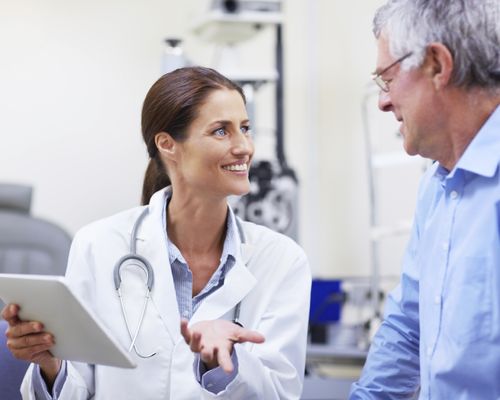My mobile doctor
‘Is there a doctor in the house?’ That old question asked during a medical emergency could be answered in the future in a way our grandparents might not have expected. The ITEA project MoSHCA has made progress towards equipping us with mobile doctors, nurses and healthcare workers.
Dutch company Evalan led a team from the South Korea, Luxembourg, Portugal, Spain and the Netherlands that developed medical applications to help save lives, tackle chronic diseases and recover from injuries. “We used sensors and machine learning techniques to create brand new healthcare applications,” says Henk Schwietert, project coordinator and Evalan’s chief executive.
With people living longer, the world’s health systems have to cope with a rise in disability and chronic diseases like diabetes and lung disease. Elderly people also break bones more easily. The MoSHCA consortium agreed there were benefits to businesses and societies that could find ways to monitor patients outside hospitals and the doctor’s surgery and away from the supervision of carers.
‘We don’t need people in hospitals. We need people at home enjoying life.’ – Beatriz López, lecturer, University of Girona
Evalan developed a shoe equipped with sensors to help patients measure the pressure they were putting on injured legs and feet while undertaking rehabilitation. In the long-term, such data gathering will also improve the study and advice patients receive in clinics and hospitals, making it better and more consistent, says Schwietert. Evalan successfully tested the shoe in clinical trials in the Netherlands and Sweden and are now selling the product commercially. Evalan plans to use thinks it can use the Bluetooth communication solution it developed for the product on other Internet of Things solutions for its clients.
Life-saving solutions
Fellow Dutch company Sound Intelligence used its specialisation in detecting sound to develop a way to alert carers and family members to people having epileptic fits while sleeping. Having already developed products to analyse the difference between sounds like slamming doors and gunshot, the firm developed an epilepsy app that uses a sound algorithm to distinguish between snoring and epileptic fitting. It signed a 10-year contract with the Heeren Loo care group to monitor 2,000 patients in the Netherlands.
Academics were crucial in helping the companies produce solutions fit for market and two patents. Artificial Intelligence specialist Beatriz López, at the University of Girona in Spain, helped develop a successful application for smartphones to help parents monitor premature babies at home. Babies wear a small device containing a sensor that produces a green, orange or red light to warn parents of whether they need to take the baby to a hospital.
In doing so, she also developed software that can be used to make all sorts of medical decisions on a patient’s case using data to tailor decisions to the individual. In the case of a premature baby, a trend of weight gain could prove more important than specific weight gained, for instance.
The MoSHCA partners are convinced the project gave them a head start in a market that is currently restrained by regulation and funding limitations but bound to grow because of stretched public health systems. “We don’t need people in hospitals. We need more people in their homes enjoying life,” says López. Pharmaceutical companies are branching out into investment in medical applications; private health companies are already using them to attract customers. “We’ll have more applications in our homes and daily lives faster than we think.”
Related projects
MoSHCA
My Mobile and Smart Health Care Assistant


